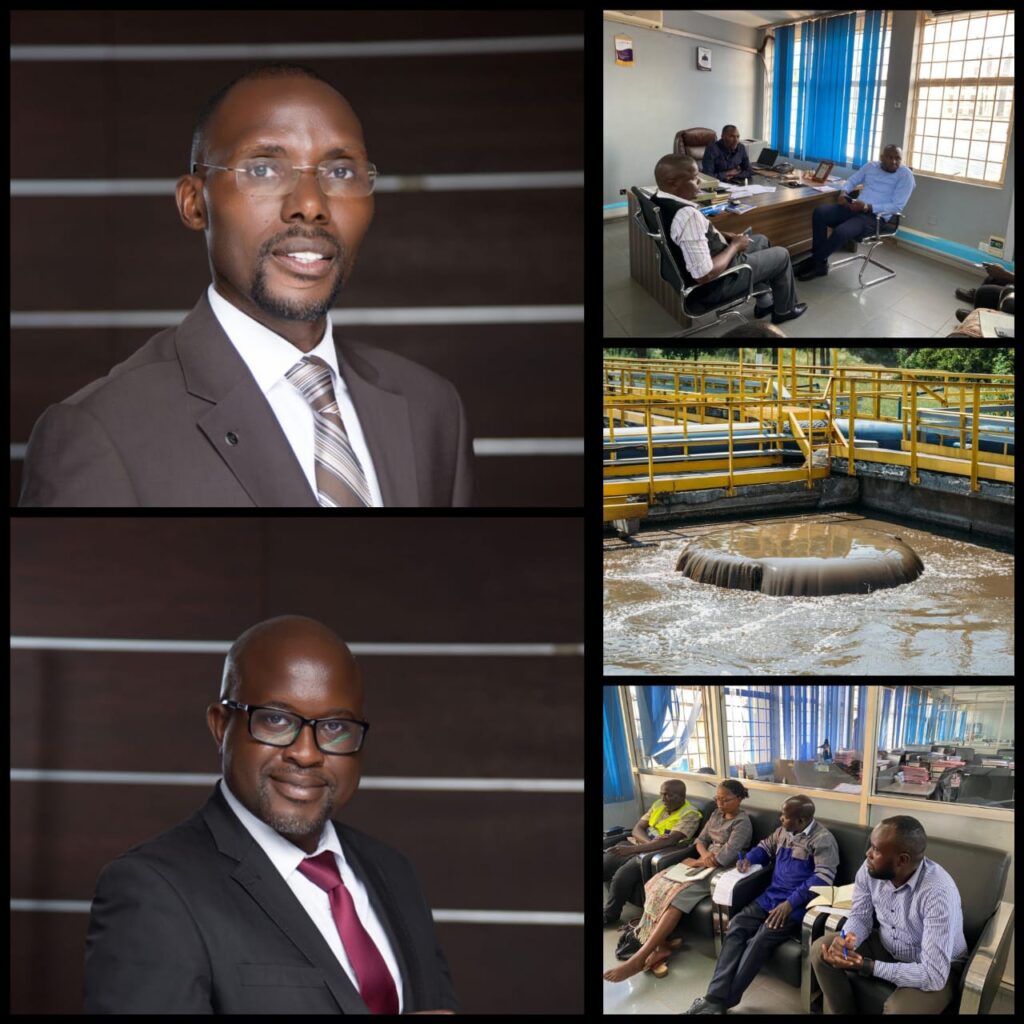
Kampala Water (KW) has embarked on an initiative aimed at streamlining sewer flat rate charges and bolstering service delivery within the corporation. With an increasingly pressing need to rectify inconsistencies in billing practices and address illegal sewer connections, KW has instituted a comprehensive approach to ensure fairness, accuracy, and efficiency in sewer billing.
The motivation for this initiative stems from the discovery of irregularities within the billing database, where 198 accounts were being charged sewer flat rates without a consistent procedure for determining these charges. Discrepancies in the tariff structure, coupled with the absence of provisions for illegal sewer connections, prompted the management to take decisive action to rectify these issues.
In August 2023, the Billing & Data Department conducted field investigations on 804 flagged accounts connected to sewer in the billing system but exhibiting minimal or zero consumption over an extended period. The findings revealed a range of scenarios, including premises with alternative water sources discharging wastewater into KW’s sewer network, suppressed NWSC accounts still utilizing sewer services, and public toilets without NWSC water connections utilizing the sewer network.
Armed with these insights, KW’s top management assembled a multidisciplinary team to review existing gaps in flat rate determination and propose standardized procedures. The team, characterized by; Dr. Nicholas Mwebaze-Senior Manager Billing & Data Management, Eng. James Maiteki-SM-Sewerage Services, William Zizinga-Senior Manager Audit & Compliance, Otto Methodious Pacific-SM Central Zone, Sarah Namwenge-Senior Manager Eastern Zone, Hellen Ejang-Senior Manager Western Zone, Annette Kukunda-Senior Manager CBD, Irene Mwase-SM Legal, Apollo Omoding-Principle Commercial Officer, and Asiimwe Sharon-Principle Billing Officer, meticulously analyzed the complexities of sewer billing to develop a step-by-step procedure tailored to address varying scenarios.
The proposed procedure defines clear protocols for different scenarios: from premises without water connections discharging sewage into the network, to those with suppressed or alternative water sources. Notably, the process includes joint verification, notification to customers, and collaboration with local authorities for enforcement, ensuring accountability and compliance.
To determine monthly charges, an elaborate verification process is outlined. “The Flat Rate Verification Team”, chaired by Mr. Apollo Omoding, has been tasked with methodically examining factors such as premises connectivity, water quality testing, nature of business, and occupancy levels. These findings are then deliberated upon by the “Flat Rate Determination Committee,” which considers historical consumption, tariff structures, and similar businesses’ consumption patterns to ascertain fair and equitable flat rates.
Importantly, recommendations from the committee are subject to approval by KW’s top management, ensuring alignment with strategic objectives and regulatory compliance. Once approved, the revised flat rates are communicated to customers in writing, with implementation overseen by the Billing and Data Management Department.
Beyond rectifying billing inconsistencies, this initiative is bound to yield significant benefits for KW and its customers. By nurturing transparency and accountability, it aims to boost customer confidence, reduce non-revenue water, curb suppressed accounts, and eradicate illegal connections, ultimately enhancing KW’s operational efficiency and service delivery.
Prior to full commencement of the initiative, KW will engage customers in a sensitization drive across all zones to aid better understanding of the initiative and the Corporation’s objectives.


